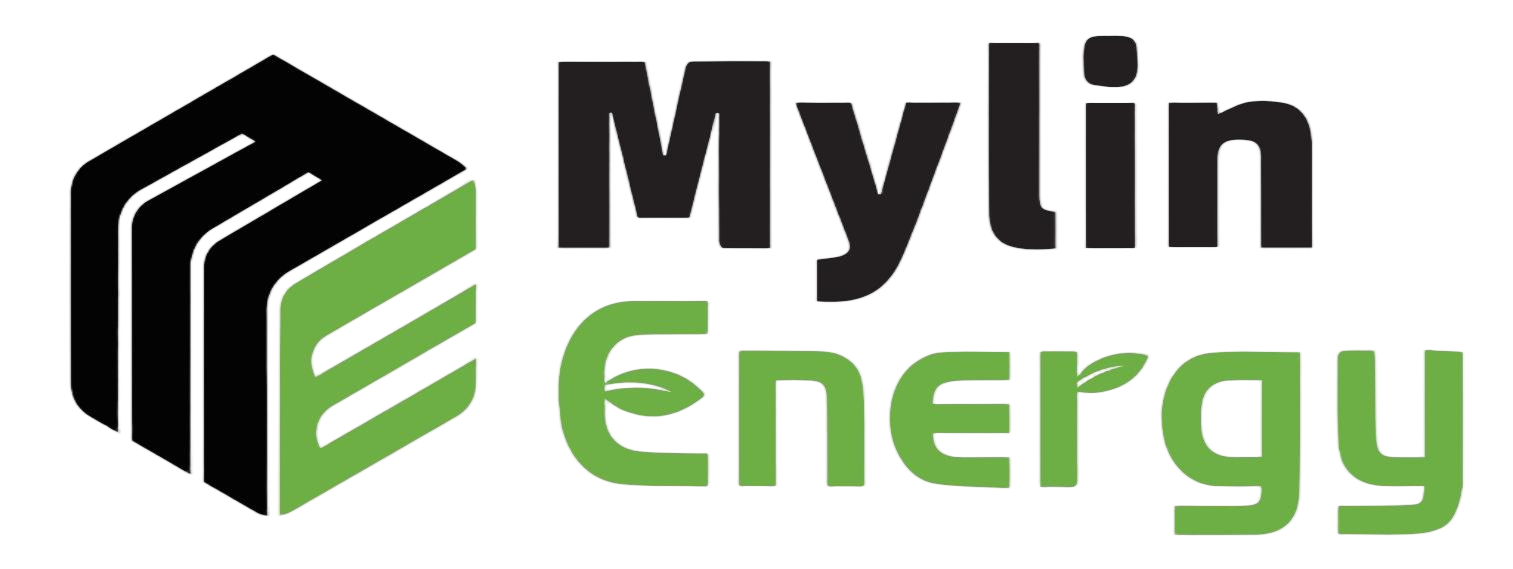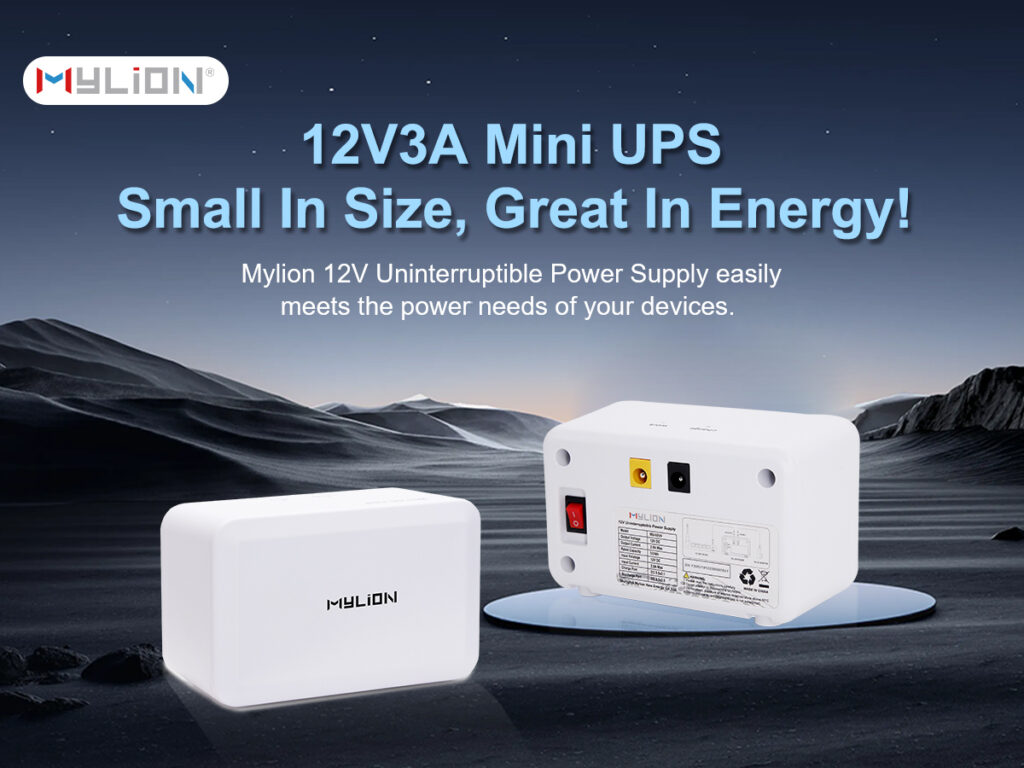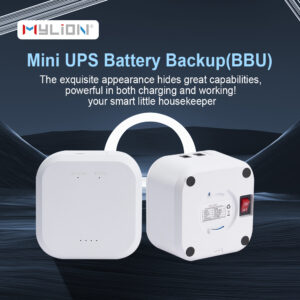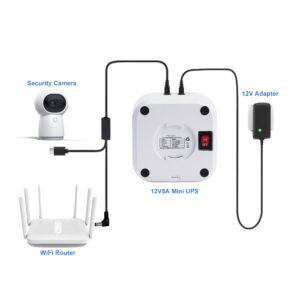In June 2025, a fire erupted at the Moss Landing battery storage facility in California—one of the largest grid-scale lithium-ion installations in the United States. The incident triggered evacuations, temporarily disrupted grid operations, and reignited concerns about the safety and resilience of centralized energy storage systems.
As the global energy sector continues to pivot toward renewables and battery-based storage, this incident serves as a powerful reminder: reliability isn’t just about capacity—it’s also about distribution, flexibility, and safety.
This is where Mini UPS (Uninterruptible Power Supply) systems enter the conversation.
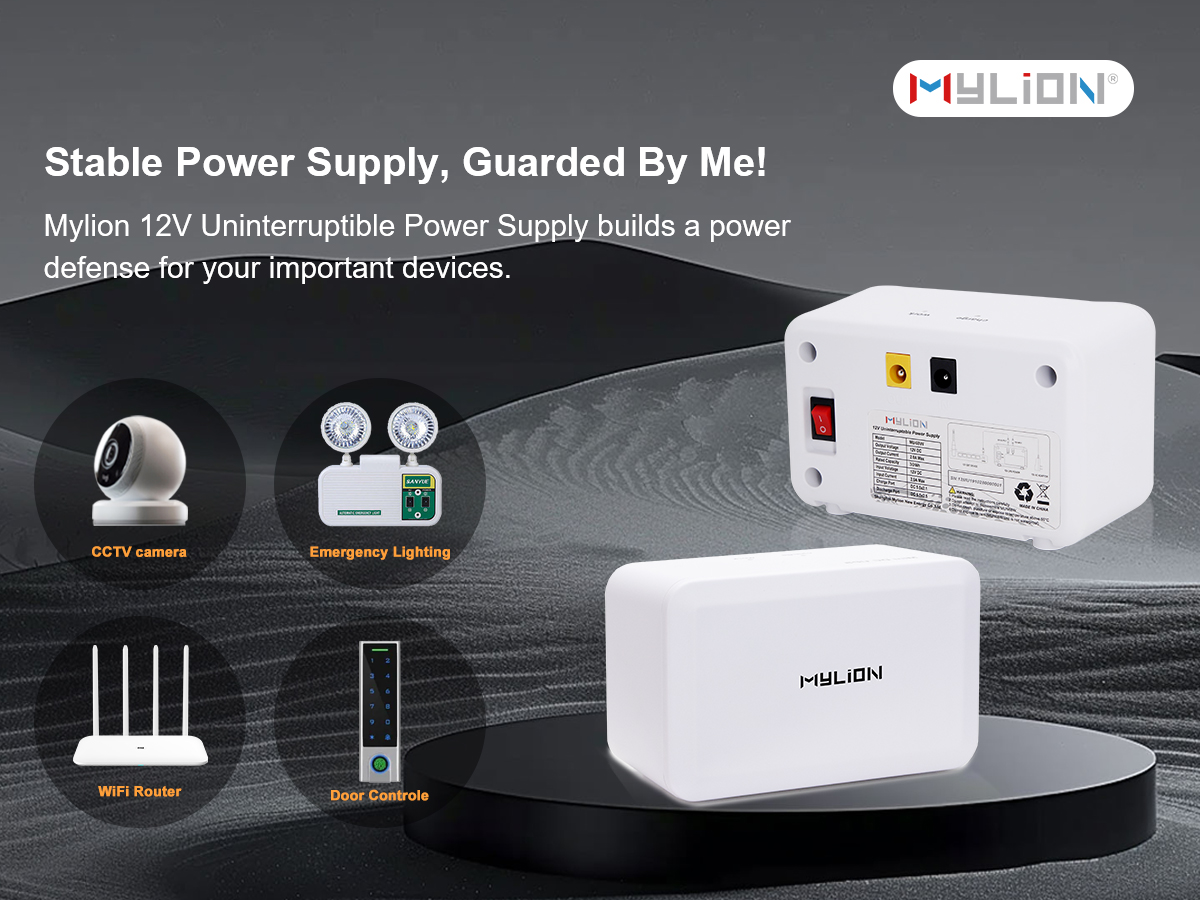
What Happened at Moss Landing?
Moss Landing was designed to store excess solar power during the day and discharge it during peak hours. But with more than 4,500 lithium-ion battery racks on-site, even one overheating cell can trigger a chain reaction. The June fire was the third thermal incident at the facility in less than four years.
These events call into question the centralized battery model and have led experts to advocate for redundant, layered backup strategies—especially for mission-critical systems like communication networks, medical devices, security systems, and IoT infrastructure.
The Risks of Centralization
Large-scale battery systems are crucial for balancing renewable energy sources and stabilizing power grids. However, their sheer scale comes with challenges:
- Thermal runaway risks in high-density lithium cells
- High cost and complexity of fire suppression
- Evacuation and shutdown impacts on surrounding infrastructure
- Vulnerability to single-point failure
While such technologies remain important, they are not suited for every use case—especially when edge devices, homes, or telecom equipment require constant, low-voltage protection.
The Case for Diversified, Distributed Backup
Mini UPS devices, by contrast, offer a more decentralized and targeted form of energy resilience. Compact, lightweight, and designed to support low-power devices, they provide backup energy exactly where it’s needed—without the logistical or safety burden of large-scale installations.
Ventajas de Mini UPS solutions:
- Local Protection: Keeps Wi-Fi routers, surveillance systems, smart locks, ONTs, medical sensors, and PoE switches running during blackouts
- Lower Risk Profile:Uses smaller capacity lithium or LiFePO4 batteries, reducing risk of fire or overheat
- Plug-and-Play Simplicity:No need for complex integration or maintenance
- Scalable Redundancy:Can be deployed across hundreds or thousands of sites, offering resilience at the edge

Global Events Underscore the Need for Localized Backup
The Moss Landing incident is not isolated. Similar risks and outages have been reported in:
- Australia (Victoria’s grid under pressure, July 2025)
- Iran & Cuba (rolling blackouts due to fuel and capacity shortages)
- Europe (Iberian Peninsula blackout in April 2025)
These events highlight that centralised systems, no matter how advanced, cannot fully protect end-users from disruptions. Mini UPS acts as the final line of defense—an affordable, scalable safeguard for modern digital infrastructure.
Resilience in a Compact Form
Whether you’re a telecom operator, a smart home integrator, or a remote monitoring service provider, the question isn’t if an outage will occur—but how well you’re prepared when it does.
At Mylion Battery, we offer a range of Mini UPS solutions tailored for:
- 5V/9V/12V/24V/48Vdevices
- WiFi and PoE applications
- Smart cities and industrial IoT
- Medical and emergency alert systems
All products are built with overvoltage protection, automatic switchover, and long-lasting lithium battery modules that ensure continued uptime when the grid fails.
Conclusion: Resilience Through Redundancy
Grid-scale batteries will remain a pillar of future energy infrastructure—but they should not be the only one. Real resilience comes from diversified backup strategies, combining centralized power with localized, intelligent systems like Mini UPS.
In a volatile energy environment, with increasing demand and climate-driven instability, distributed backup isn’t just a smart idea—it’s a necessity.

